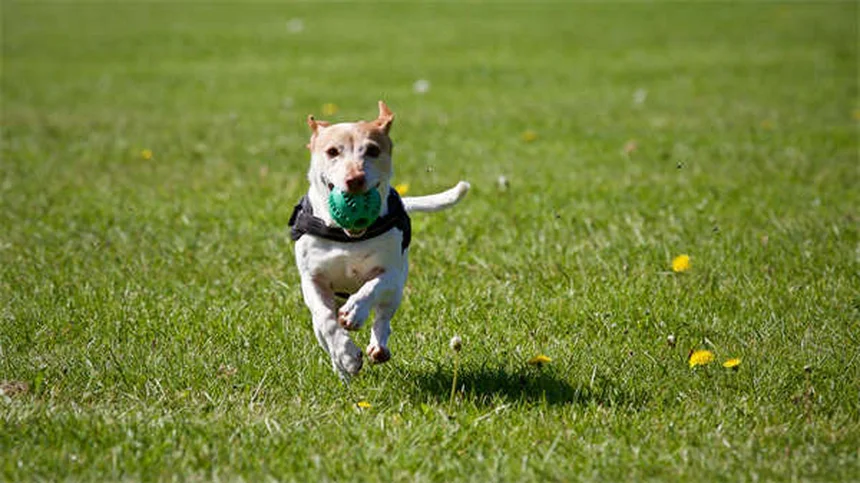Why are dog vaccinations important? The answer is simple: vaccinating your dog is the single most effective way to protect them from deadly diseases. As a pet owner myself, I can't stress enough how crucial these shots are - they've saved countless canine lives through the years. Whether you've got a playful puppy or a senior dog, vaccines provide that critical shield against illnesses like rabies, distemper, and parvovirus that can be expensive to treat and often fatal. The best part? Modern vaccines are safer than ever, with minimal side effects for most dogs. In this guide, we'll break down everything you need to know about core and lifestyle vaccines, when to get them, and how they keep your furry family member healthy for years to come.
E.g. :Thymoma in Rabbits: Symptoms, Treatment & Care Guide
- 1、Why Vaccinating Your Dog is a No-Brainer
- 2、The Puppy Vaccination Game Plan
- 3、Adult Dog Vaccines - Keeping Protection Strong
- 4、The Scary Diseases Vaccines Prevent
- 5、How Much Do Dog Vaccines Cost?
- 6、Vaccine Reactions - What to Watch For
- 7、Your Burning Vaccine Questions Answered
- 8、The Hidden Benefits of Vaccinating Your Dog
- 9、Vaccines and Your Dog's Social Life
- 10、Vaccines and Your Wallet
- 11、Common Vaccine Myths Debunked
- 12、Making Vaccines Less Stressful
- 13、When to Call the Vet Between Vaccines
- 14、FAQs
Why Vaccinating Your Dog is a No-Brainer
Let me tell you something - keeping your furry friend vaccinated is like giving them a superhero shield against nasty diseases. Vaccines are the real MVPs here - they're affordable, safe, and literally save lives. Over the past 10 years, the science behind dog vaccines has gotten so good that we can now protect pups from more threats than ever before.
The Two Types of Dog Vaccines You Need to Know
Alright, let's break this down simply. There are two main categories of dog vaccines:
Core Vaccines (the must-haves):- DA2PP/DHPP/DAPP (that's a mouthful - it protects against distemper, hepatitis, parvovirus, and parainfluenza)
- Rabies (this one's required by law)
- Leptospirosis (often combined with the others as DHLPP)
- Bordetella (kennel cough)
- Lyme disease
- Canine flu (H3N2/H3N8)
- Rattlesnake vaccine (for our adventurous pups)
How Your Vet Decides What's Right For Your Dog
Picture this - you walk into your vet's office and they start asking all these questions about your dog's life. Where do you live? Does Fido go to doggy daycare? Are you the hiking type? This isn't small talk - they're figuring out which lifestyle vaccines your pup needs!
Here's a pro tip: If your dog is a social butterfly who loves dog parks and playdates, they'll probably need more protection than a homebody who just chills on the couch all day.
The Puppy Vaccination Game Plan
 Photos provided by pixabay
Photos provided by pixabay
When Do Puppies Need Their Shots?
New puppy parents always ask me this! Here's the deal - puppies get their first shots at 6-8 weeks old, then boosters every 2-4 weeks until they're at least 16 weeks old. Some big breeds or pups in high-risk areas might need shots up to 20 weeks.
Think of it like building their immune system - each shot adds another layer of protection. Miss a booster? You're basically leaving holes in their armor!
The Puppy Vaccination Schedule Made Simple
| Puppy's Age | Core Vaccines | Lifestyle Vaccines |
|---|---|---|
| 6-8 weeks | DAP* | Bordetella, Parainfluenza |
| 10-12 weeks | DHLPP | Lyme, Canine flu |
| 14-16 weeks | DHLPP & Rabies | Lyme, Canine flu |
*DAP = Distemper, Adenovirus/Hepatitis, Parvovirus (sometimes with extra letters like P or L when they add more protection)
Want to socialize your pup before they're fully vaccinated? Try a dog stroller - keeps them safe while they check out the world!
Adult Dog Vaccines - Keeping Protection Strong
The Annual Must-Dos
Once your dog graduates from puppyhood, the vaccine schedule gets simpler but no less important. Here's what adult dogs typically need:
| Frequency | Core Vaccines | Lifestyle Vaccines |
|---|---|---|
| Every Year | Rabies (first shot), Leptospirosis | Lyme, Canine flu, Bordetella (sometimes every 6 months) |
| Every 3 Years | DAP, Rabies (after first shot) | None available yet |
 Photos provided by pixabay
Photos provided by pixabay
When Do Puppies Need Their Shots?
No shame if your dog's behind schedule! Your vet might recommend a booster or temporary annual schedule to get them fully protected. Better late than never when it comes to vaccines!
The Scary Diseases Vaccines Prevent
Rabies - The Big Bad Wolf
Did you know rabies is 100% fatal once symptoms appear? That's why the rabies vaccine is required by law in all 50 states. This nasty virus attacks the nervous system and can spread to humans through bites.
Here's something that'll make you sit up straight - if an unvaccinated dog gets exposed to rabies, they might need to be quarantined or even euthanized. That's how serious this is!
The DAP Trio - Distemper, Adenovirus, Parvovirus
These three are like the terrible trio of dog diseases:
- Distemper: Causes neurological problems, pneumonia, and is often fatal
- Adenovirus: Leads to hepatitis and can damage liver/kidneys
- Parvovirus: Brings on severe vomiting/diarrhea - especially dangerous for puppies
The good news? One combo vaccine protects against all three!
 Photos provided by pixabay
Photos provided by pixabay
When Do Puppies Need Their Shots?
Ever heard a dog with that honking cough? That's probably Bordetella or parainfluenza. While usually mild, it can turn into pneumonia. Most boarding facilities require this vaccine - no shot, no stay!
Canine Flu - Not Just a Human Problem
Yep, dogs get the flu too! The H3N2 and H3N8 strains cause coughing, runny nose, and fever. Social dogs are most at risk - so if your pup's a regular at daycare, this vaccine might be a smart move.
How Much Do Dog Vaccines Cost?
Let's talk numbers - because I know budget matters! Here's the breakdown:
- Basic DHLPP: $20-$60 per shot
- Rabies: $20-$30
- Other vaccines: Usually under $100 each
Puppy vaccines cost more upfront (all those boosters!), but adult maintenance is cheaper. Pro tip: Check local shelters for low-cost vaccine clinics - some even offer free shots!
Vaccine Reactions - What to Watch For
Most dogs handle vaccines like champs, but some might feel a bit off afterward. Normal reactions include:
- Mild soreness at injection site
- Low energy for a day
- Reduced appetite
Emergency signs (call your vet STAT!):
- Facial swelling
- Difficulty breathing
- Hives or severe itching
- Vomiting/diarrhea
Fun fact: Smaller dogs tend to react more often than big dogs. Always tell your vet if your dog's had reactions before!
Your Burning Vaccine Questions Answered
How Many Vaccines Does My Dog Really Need?
This is like asking "how many shoes does a person need?" - it depends! Your vet will create a custom plan based on your dog's age, lifestyle, and local disease risks.
What If I Never Vaccinate My Dog?
Would you drive without seatbelts? That's what skipping vaccines is like. Unvaccinated dogs risk deadly, preventable diseases - some that can spread to humans too!
Is My Senior Dog Too Old for Vaccines?
Never! Older dogs actually need protection more than ever as their immune systems weaken. Your vet might adjust the schedule, but vaccines are lifelong necessities.
The Hidden Benefits of Vaccinating Your Dog
Protecting More Than Just Your Pup
Here's something most people don't think about - when you vaccinate your dog, you're actually helping the whole canine community! It's called herd immunity, and it's pretty amazing. When enough dogs in an area are vaccinated, diseases have trouble spreading. This protects puppies too young for shots, elderly dogs with weak immune systems, and even stray animals.
Think about it like this - if 90% of dogs at the dog park are vaccinated against parvovirus, that nasty bug has nowhere to go. But if only half the dogs are protected? That virus starts doing the cha-cha slide from one pup to another!
Vacations Without Worry
Ever tried to board your dog last minute only to realize they're missing required vaccines? Been there! Keeping your dog's shots current means you can:
- Book spontaneous weekend getaways
- Use doggy daycare when work gets crazy
- Travel knowing your pup is safe in boarding
Most boarding facilities won't even let your dog through the door without proof of rabies and bordetella vaccines. And honestly? That's a good thing - it keeps all their furry guests healthy!
Vaccines and Your Dog's Social Life
Making Friends Safely
You know what's worse than your dog being the unpopular one at the park? Your dog getting sick because another pup wasn't vaccinated! Responsible vaccination means playdates don't turn into sick days. I've seen too many dogs miss out on fun because they caught something preventable.
Here's a quick story - my neighbor's golden retriever Max couldn't play with other dogs for three months after catching kennel cough at an unvaccinated dog meetup. Three months of lonely walks while his friends played! That's why I always ask about vaccination status before setting up puppy playdates.
The Dating Scene for Dogs
Believe it or not, vaccines even matter if you're considering breeding your dog someday. Responsible breeders require proof of vaccinations before considering mates. And if you're adopting from a shelter? They'll spay/neuter your dog - but only if they're up-to-date on shots first!
It's like the canine version of checking someone's social media before a first date - you want to make sure they're healthy before things get serious!
Vaccines and Your Wallet
Prevention vs. Treatment Costs
Let's play a quick game of "Would You Rather?" Would you rather:
- Pay $50 for a distemper vaccine
- Or $2,000+ for emergency parvovirus treatment
I know which one I'm choosing! Serious dog illnesses can cost thousands to treat, while vaccines cost pennies in comparison. That $20 bordetella shot could save you $500 in vet bills if your dog catches kennel cough at daycare.
Insurance Perks
Here's a fun fact - some pet insurance companies give discounts if you keep your dog's vaccines current! They know vaccinated dogs are less likely to need expensive treatments. It's like when your car insurance gives you a safe driver discount - except instead of avoiding tickets, you're avoiding parvovirus!
Common Vaccine Myths Debunked
"Natural Immunity is Better"
Some folks think letting dogs get sick builds better immunity than vaccines. Here's the problem - many of these diseases can kill before the immune system has a chance to respond. Parvovirus can take a healthy puppy from playful to critical in under 48 hours. Vaccines teach the immune system to fight without the life-threatening illness part!
"Vaccines Cause Autism in Dogs"
Wait - dogs don't even get autism! This myth got started when people misunderstood a human vaccine study. There's zero scientific evidence linking vaccines to any behavioral changes in dogs. What vaccines do cause? Happy, healthy pups who live longer!
Making Vaccines Less Stressful
Pre-Vet Visit Tips
I get it - nobody likes shots, not even dogs. Here are my pro tips for easier vet visits:
- Bring high-value treats (think chicken, not kibble)
- Practice happy visits - just stop by for pets and treats sometimes
- Use a calming pheromone spray on their carrier or bandana
My dog Charlie used to shake at the vet until we started doing "happy visits" - now he wags his tail when we pull into the parking lot!
The Power of Distraction
Ever notice how time flies when you're having fun? Same goes for dogs getting shots! Bring their favorite squeaky toy or practice simple commands during the exam. Most dogs barely notice the quick pinch when they're focused on something else.
Pro tip: Ask your vet about giving treats during the shot - it creates positive associations. My vet calls it the "peanut butter trick" - smear some on the exam table and most dogs are too busy licking to care about needles!
When to Call the Vet Between Vaccines
Normal vs. Concerning Reactions
Most dogs bounce back from vaccines within a day, but how do you know when to worry? Here's my simple rule: If your dog is acting strange instead of just sleepy, call the vet. Sleeping extra? Normal. Refusing favorite treats? Not normal.
I always tell clients to trust their gut - you know your dog better than anyone. If something feels off, it's better to call and hear "that's normal" than to wait too long!
The 24-Hour Rule
After vaccines, I give my dogs 24 hours of easy living - short walks, extra cuddles, and no roughhousing. It's like when you feel a bit off after your flu shot - you wouldn't run a marathon right after! This recovery time helps their immune system focus on building protection.
Bonus: It's the perfect excuse for a lazy movie day with your pup. Popcorn for you, treats for them - everyone wins!
E.g. :Puppy Shots Schedule: A Complete Guide to Puppy Vaccinations
FAQs
Q: What are the absolutely necessary vaccines for dogs?
A: Every dog needs core vaccines - these aren't optional! The must-haves include the DA2PP combo (protects against distemper, adenovirus, parvovirus, and parainfluenza) and rabies (required by law in all 50 states). Many vets now also consider the leptospirosis vaccine essential since outbreaks are occurring in urban areas. I always tell my clients - think of core vaccines like your dog's basic health insurance. They're the foundation that protects against the most dangerous and common diseases. The rabies vaccine alone has saved millions of animal and human lives since its development!
Q: How often do adult dogs need booster shots?
A: Most core vaccines follow this schedule: rabies boosters are typically given every 1-3 years (depending on your state laws and vaccine type), while the DAP combo is usually every 3 years. However, leptospirosis and many lifestyle vaccines require annual boosters. Here's what many pet owners don't realize - immunity can fade over time, so those booster shots are just as important as the initial vaccines. Your vet will keep you on track, but I recommend marking your calendar or setting phone reminders so you never miss these critical appointments.
Q: Are puppy vaccines different from adult dog vaccines?
A: Puppies need more frequent vaccinations to build their immune systems properly. They start at 6-8 weeks old and get boosters every 2-4 weeks until about 16-20 weeks old. The vaccines themselves are similar to adult versions, just given more often initially. What many new puppy parents don't know is that maternal antibodies can interfere with early vaccines, which is why we do multiple rounds. Pro tip: keep your pup away from high-risk areas like dog parks until they complete their full vaccine series - their little bodies are vulnerable during those first few months!
Q: What's the average cost of dog vaccinations?
A: Budget about $75-$150 annually for core vaccines, with lifestyle vaccines adding $20-$100 each. Puppy packages typically cost more ($100-$300) because of all the initial shots needed. Here's some good news - many animal shelters and community clinics offer low-cost vaccine options, sometimes as little as $10-$15 per shot. I always advise clients that while vaccines aren't free, they're far cheaper than treating the diseases they prevent (parvovirus treatment alone can cost $1,000+!). Consider it an investment in your dog's long-term health.
Q: Can vaccines make my dog sick?
A: While serious reactions are rare (less than 1% of dogs), mild side effects like soreness or lethargy can occur for a day or two. In my 10 years of practice, I've seen that smaller breeds tend to react more often than larger dogs. The key is monitoring your pup after vaccinations - normal reactions include slight fever or decreased appetite, but emergency signs like facial swelling or difficulty breathing require immediate vet attention. Remember - the risks of vaccine reactions are tiny compared to the dangers of the diseases they prevent. If your dog has reacted before, we can pre-treat with antihistamines to minimize issues.





